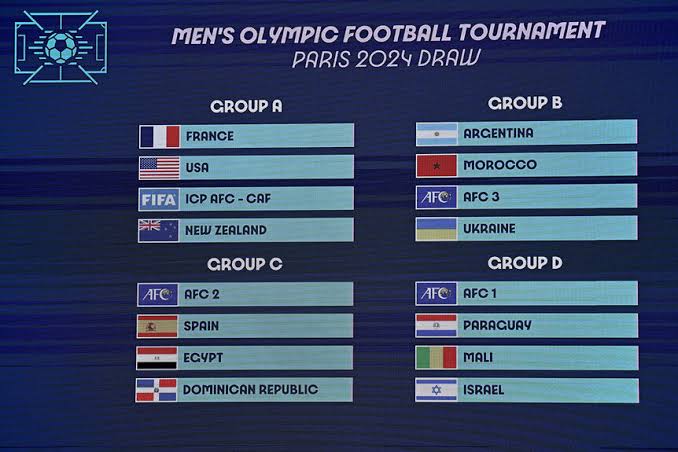At its core, Olympic football has never been about winning or losing; it’s about a cultural phenomenon that brings people together across borders and motivates future generations.
The Olympic Games provide a once-in-a-lifetime opportunity for young athletes to make a lasting impression and establish themselves as stars, and the football world is no exception.
Table of Contents
A Rich History and Evolving Format

While football did appear in the 1900 Paris Games, it was in the 1924 Olympics that it became a staple of the Olympic program.
There have been several format modifications over the years, the most notable of which being the introduction of an age restriction in 1992.
This restriction limited participation to players aged 23 and under, with an additional three players allowed over the age of 23.
With this regulation adjustment, the competition became a platform for up-and-coming talent.
When the Olympics first began, amateurs played a disproportionate amount of football. The tournament’s luster diminished due to the proliferation of professional leagues.
On the other hand, the age limit sparked a renewed interest and redirected attention to young, promising performers.
An International Hit and Its Cultural Effect
Football at the Olympic level has no bounds, whether it comes to language, culture, or geography.
The tournament’s capacity to attract spectators all across the globe is evidence of how popular the sport is.
The quadrennial event is a real-world spectacle, with fans from all over the world looking forward to it with great anticipation.
In addition to its competitive value, Olympic football has fostered mutual understanding and collaboration among nations.
Football is a platform for sportsmen and spectators from many backgrounds to come together under the spirit of Olympism, which promotes camaraderie, respect, and fair play.
Football at the Olympics has had an indisputable cultural effect. Many young kids have been motivated to follow their passion for football and become professional players.
Images of Brazil’s unbelievable wins or Nigeria’s hypnotic style of play during an Olympic football match have become famous in sports.
The Journey to Olympic Success
Earning a spot in the Olympic football competition is no easy feat. The best teams from each area participate in qualifying events so that they may compete in the Olympics.
Although there are many challenges on the way to the podium, the payoff for those who make it there is immense.
READ MORE – paris olympics tickets
Achieving Olympic qualification is a significant accomplishment for many countries. As a result, youth football programs are born and thrive, and the participants experience a sense of accomplishment and joy.
Future generations of coaches and players might be inspired by the experience of competing at the most significant level.
Effects on Athletes and Countries
For many young players, winning the Olympic gold medal would be the ultimate goal. Playing at the highest level with the world’s finest prepares them for professional football success in the future and accelerates their growth.
Furthermore, winning an Olympic gold medal may motivate a whole country and indelibly affect the national character.
Pelé, who won gold with Brazil in 1963, and Lionel Messi, who won gold with Argentina in 2008, are just two of many football greats who have appeared on the Olympic stage.
The Olympics have been a launching pad for many successful careers, including those of these athletes.
Winning the gold medal in football at the Olympics is something every country is very proud of.
It strengthens national pride, brings people together, and raises the country’s profile in the sporting world.
The results are more people playing football, better facilities, and a more robust football culture.
The monetary and societal advantages
A nation that hosts the Olympic football event may enjoy substantial economic advantages.
Among the many beneficial effects of the event are an uptick in tourism, improvements to existing infrastructure, and new employment opportunities.
Moreover, the competition has the potential to spur social transformation by advancing causes such as youth empowerment, gender parity, and community development.
The Olympic Games have had an impact well beyond the world of athletics. Stadiums and training facilities constructed for the event have been used for a long time, contributing to the betterment of surrounding communities and fostering growth in sports.
Furthermore, the host city’s prominence on a worldwide scale might entice investors and open doors to new economic prospects.
Forecasting Olympic Football’s Future
Olympic football adapts to the changing world. The IOC always looks for new methods to make the Olympics more exciting and meaningful.
Video assistance referees (VAR) and sophisticated analytics are two technological innovations that enhance the game’s integrity and the spectator experience.
Keeping the spirit of the Olympics alive while meeting the high standards of professional football is a significant obstacle for Olympic football.
Maintaining the Olympic spirit while recruiting elite players is becoming more and more challenging as the gap between high-level youth football and professional football increases.
Despite all these obstacles, Olympic football still has a bright future. The competition has the potential to maintain its reputation as an integral part of the Olympic Games by motivating young athletes, bringing countries together, and captivating spectators worldwide.
In summary
Fans all across the globe can’t get enough of the exciting and unpredictable sport of Olympic football.
In addition to fostering economic and social growth, it provides a stage for up-and-coming artists to showcase their abilities.
A staple of the Olympic Games, the competition continues to inspire competitors and spectators with its ever-changing format.